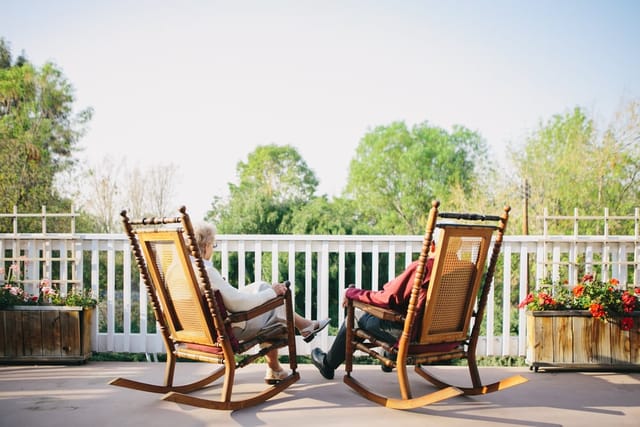The American South boasts a rich culture, warm hospitality, and a relaxed pace of life.

However, a troubling trend exists: Southerners have shorter average life expectancies than people in other parts of the country. For instance, research from American Inequality discovered that people from Florida and Mississippi might die up to two decades earlier — yes, that’s 20 years! — than people from Colorado and California. Sadly, that’s just one example. Here’s a look at some of the intertwined factors at play.
1. Higher rates of obesity and related health problems

The South consistently has higher rates of obesity than other regions, the CDC reports (though the Midwest isn’t far behind). This contributes to a greater prevalence of chronic diseases like heart disease, Type 2 diabetes, stroke, and certain types of cancer – all of which can significantly impact lifespan.
You may also like: 16 Habits Of People Who Are More Attractive Than They Think
2. Dietary habits that favor fried, processed, and sugary foods
 iStock
iStock
Traditional Southern cuisine, while delicious, often prioritizes flavor over health. Dishes laden with saturated fat, high in sodium, and loaded with added sugar are staples on many tables. While certainly enjoyable in moderation, a diet heavily reliant on these foods fuels widespread health problems, per Healthline.
You may also like: 19 Stereotypes About The South That Are Totally Untrue
3. Limited access to affordable healthcare in many areas

Rural areas and poorer communities often have fewer primary care physicians, specialists, and hospitals, research from the National Institutes for Health (NIH) reveals. This lack of access makes preventive care, early diagnosis, and management of chronic conditions more difficult. Untreated or poorly managed health issues significantly impact both quality of life and longevity.
Don’t miss out – follow Bolde for exclusive content daily
4. Socioeconomic disparities and their health impacts

As Duke University notes, the South has a higher proportion of its population living in poverty compared to other regions. Lower income levels correlate with a plethora of negative health outcomes. Issues such as poor food access, unsafe housing, increased stress levels, and limited health literacy all contribute to shorter lifespans.
You may also like: Things You Should Never Say To Someone You Love
5. Less emphasis on preventive health measures

Preventive screenings, regular checkups, and proactive wellness habits can catch health problems in their early, more manageable stages. Cultural factors, lack of access, and lower health literacy can sometimes create a healthcare model that’s more reactive than preventive, affecting long-term outcomes.
Don’t miss out – follow Bolde for exclusive content daily
6. Higher rates of tobacco use
Despite nationwide declines in smoking, the South still suffers disproportionately high rates of tobacco use — 12.4% of the population, according to the CDC. Smoking is the leading preventable cause of death, linked to a wide range of cancers, heart disease, respiratory illness, and an overall decline in health.
You may also like: Reasons Your Adult Children Want Nothing To Do With You
7. The “Stroke Belt” with a higher than average rates of death from strokes

A swathe of states across the South have earned the grim designation of the “Stroke Belt” due to alarming rates of stroke-related deaths. This is attributed to a combination of factors including higher rates of hypertension, diabetes, and obesity – all major risk factors for stroke.
Don’t miss out – follow Bolde for exclusive content daily
8. Cultural norms that can sometimes discourage prioritization of health

While certainly not universally true, ideas like “food as comfort,” indulgence as a sign of hospitality, or a stoic “toughing it out” mentality can sometimes downplay the importance of healthy lifestyle choices and seeking timely medical care.
You may also like: People Who Had Unhappy Childhoods Usually Develop These Traits
9. Not enough physical activity

Sedentary lifestyles are a problem nationwide, but the South has some of the highest rates of inactivity at around 28%, per HealthDay. Regular physical activity is crucial for maintaining a healthy weight, reducing cardiovascular disease risk, and supporting both physical and mental well-being.
Don’t miss out – follow Bolde for exclusive content daily
10. Environmental factors like pollution and poor air quality
Certain areas of the South with heavy industry or dense traffic face elevated pollution levels. Long-term exposure to air pollution is associated with increased risk of heart disease, respiratory problems, and various cancers.
You may also like: How A Narcissist Acts When You Start Seeing Through Their BS
11. Widespread issues of addiction

The opioid crisis has hit many Southern communities hard, the USDA reports. In addition to overdose deaths, addiction takes a heavy toll in terms of chronic health conditions, compromised mental health, strained relationships, and economic instability – factors negatively impacting overall lifespan.
Don’t miss out – follow Bolde for exclusive content daily
12. Higher rates of gun violence and homicides

Tragically, several Southern states have higher than average rates of gun violence, Politico reports. Beyond the immediate loss of life in homicides, gun violence contributes to shorter lifespans due to increased risk of suicide and the detrimental impact of living amidst frequent violence on community health.
You may also like: 15 Things To Keep To Yourself Because They’re Nobody’s Business But Yours
13. Structural racism and health disparities

The South bears the heavy legacy of structural racism. Minority communities often face poorer access to quality healthcare, higher environmental burdens, and increased stress due to discrimination – all of which create significant health disparities and contribute to shorter lifespans.
Don’t miss out – follow Bolde for exclusive content daily
14. Limited infrastructure supporting healthy choices

In some areas, lack of pedestrian walkways, limited public transportation options, fewer grocery stores with fresh produce, and fewer safe recreational spaces make it genuinely harder to implement healthy lifestyle changes, even with the best intentions.
You may also like: How A Narcissist Acts When They Can’t Fool You Anymore
15. Less restrictive laws regarding tobacco, alcohol, and unhealthy foods

Some Southern states have weaker laws regarding the sale and marketing of tobacco products, less strict taxation on alcohol or sugary beverages, and fewer regulations on unhealthy food advertising. These policies directly influence consumption and health outcomes.
Don’t miss out – follow Bolde for exclusive content daily
16. Chronic stress and its long-term consequences

Socioeconomic disparities, the lingering impact of historical trauma for minority communities, and greater financial strain for many households create higher levels of chronic stress. This ongoing stress takes a serious toll on both physical and mental health, contributing to chronic disease and shorter lifespans.
You may also like: 16 Signs You Didn’t Get Enough Affection As A Child
17. Heat-related illness and mortality

The South experiences more extreme heat events with longer hot seasons due to climate change, NASA reports. This poses increased risks for heat-related illnesses, especially for the elderly, outdoor workers, and those with pre-existing health conditions. Dehydration, heat exhaustion, and heat stroke can be life-threatening, contributing to mortality rates.
Enjoy this piece? Give it a like and follow Bolde on MSN for more!





